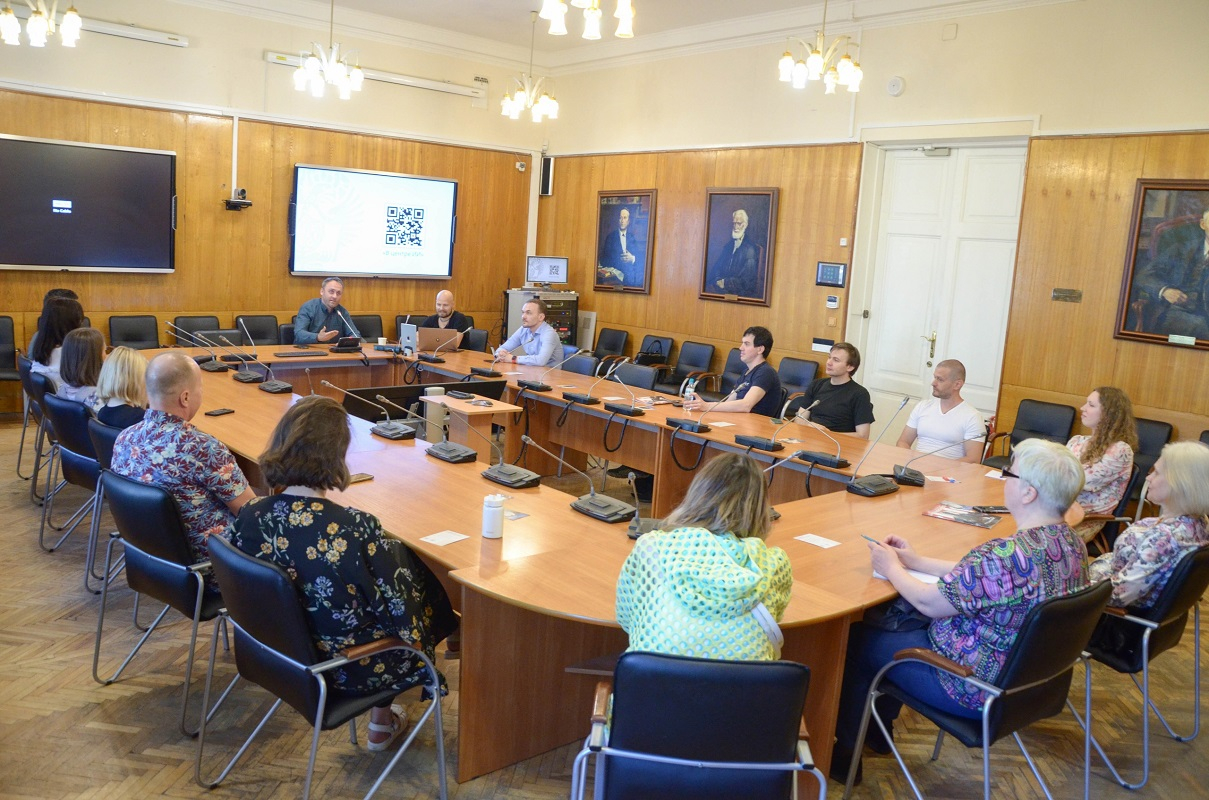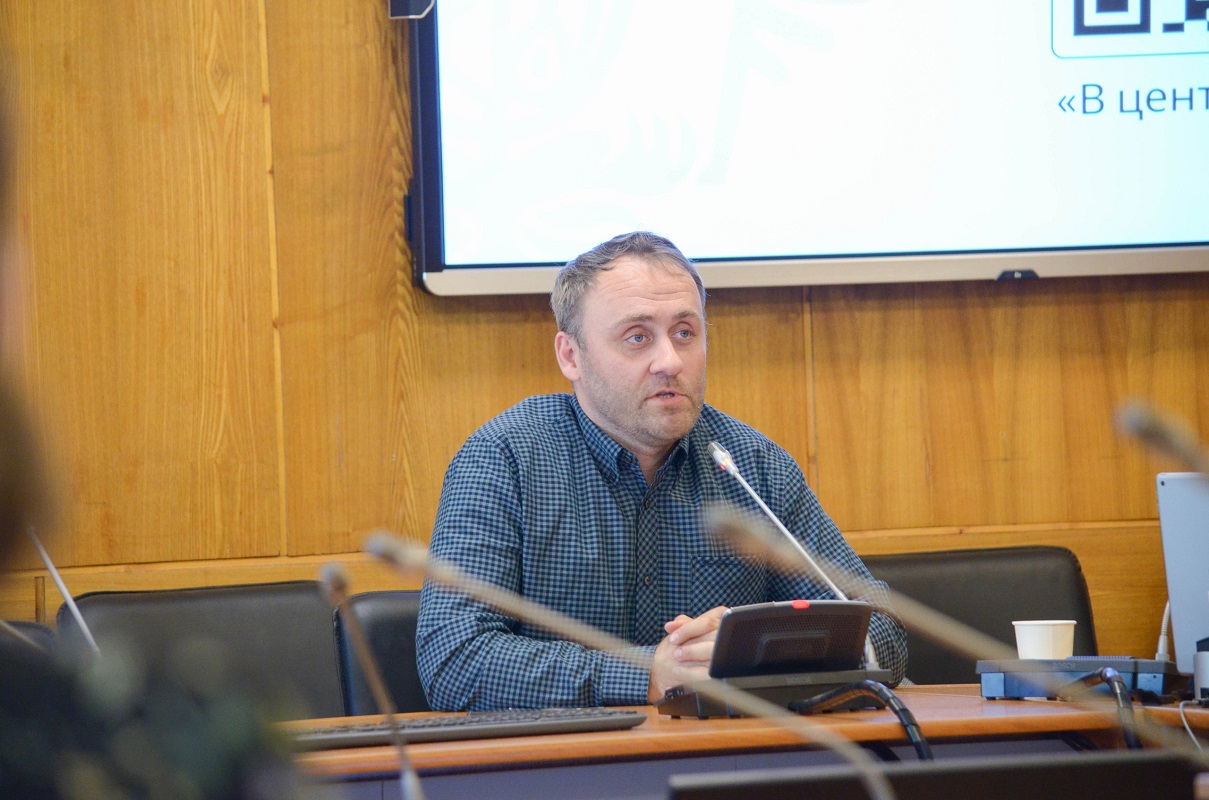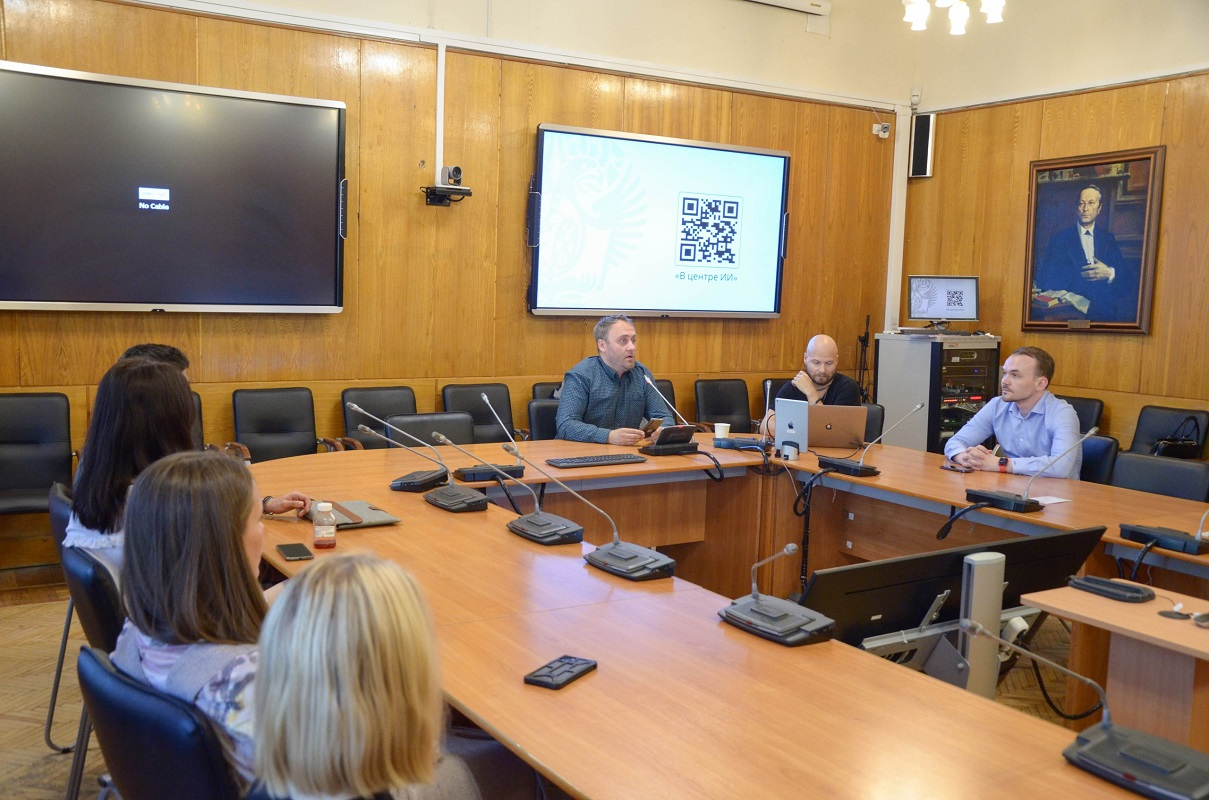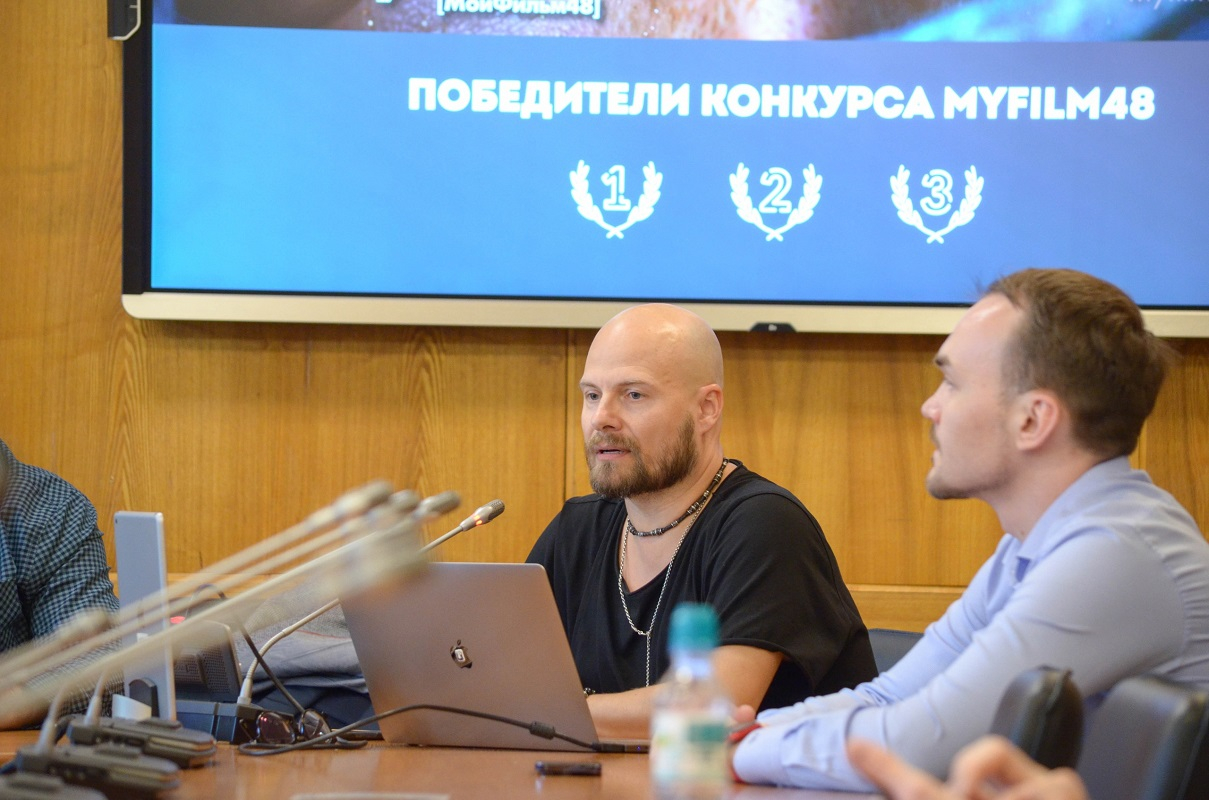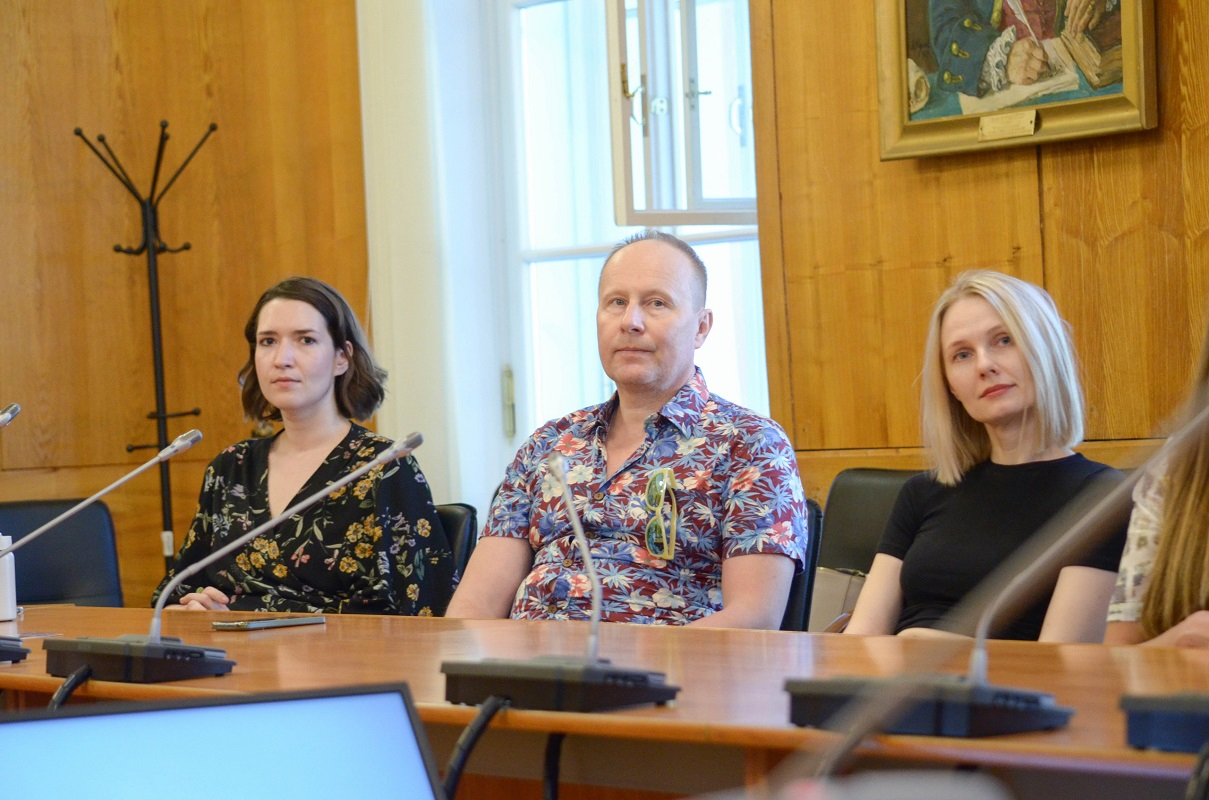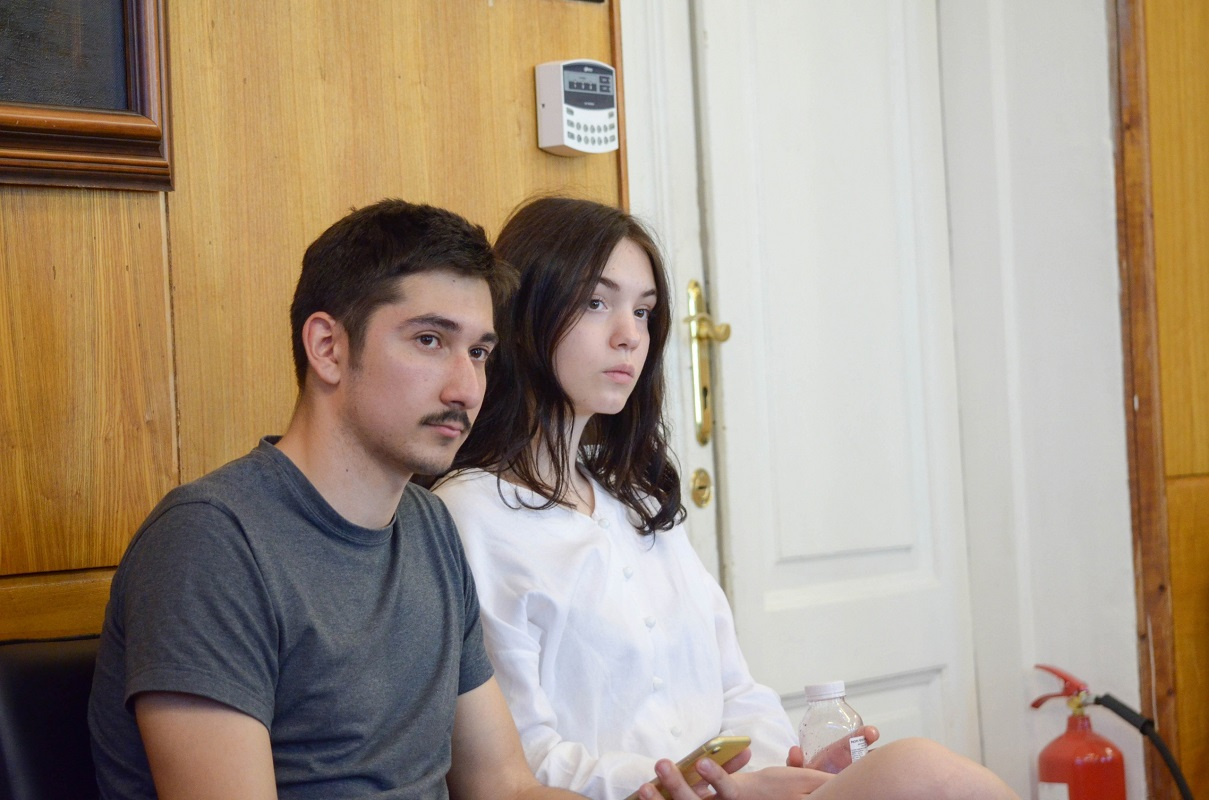St Petersburg University experts discuss the problems and prospects for using artificial intelligence in new media
At St Petersburg University, experts have discussed what impact the artificial intelligence has on modern journalism and what new approaches we have to create information content. The discussion was part of the work of the St Petersburg University Alumni Discussion Club. They also assessed further prospects for developing AI in the media. The event brought together experts in the field of AI who shared their experience and vision of how this technology could develop in future.
The key topics of the discussion included the impact of artificial intelligence on the global media landscape and the ethics of using new technologies in journalism, including issues of responsibility for disseminated information and the potential reduction of jobs. According to Kirill Dorozhkin, Executive Director of the Centre for Artificial Intelligence and Data Science at St Petersburg University, the meeting was the beginning of a series of discussions to analyse and optimise the use of AI in media structures and to create new directions for industry development.
"Today, we are witnessing how, starting from 2023, the field of application of artificial intelligence in the media has been actively developing. Every month, new models appear, new scenarios are implemented, and the quality of generated content is improving. The best experts are invited to participate in today’s discussion in order to document the intermediate stage of technology development and formulate solutions that the AI Centre can use to create its content," said Kirill Dorozhkin.
Artificial intelligence and robotic workflows are becoming increasingly hot topics on leading forums, as they open up new opportunities to improve efficiency, accuracy and personalisation of information in many areas. Modern neural networks, according to producer and ambassador of the T Box company Roman Sharafutdinov, can significantly speed up data analysis, providing more accurate forecasts and solutions to problems in real time, including texting. The expert presented epigraphs adapted to the style of famous writers and philosophers, and announcements written through the Claude neural network for various news sites. Roman Sharafutdinov demonstrated how new technologies could be used to automate content creation, reduce costs and increase the efficiency of publications. In this regard, artificial intelligence can meet the parameters, but does not ensure the uniqueness and creativity of the product.
The event "Artificial Intelligence and New Media" is part of the project ‘St Petersburg University Architects Club’, i.e. a series of meetings within the St Petersburg University Alumni Discussion Club to discuss the impact of modern technologies on various sectors of society and the application of an architectural approach to the social sphere.
The integration of AI into everyday life and business processes is becoming an integral part of the modern world, transforming the way people work and interact. According to the 2023 Index of Intellectual Maturity of Economic Sectors, Social Sectors and Public Administration System, a significant effect from the use of technology has already been evidenced in such areas as financial services, the ICT sector, and healthcare, said the participants.
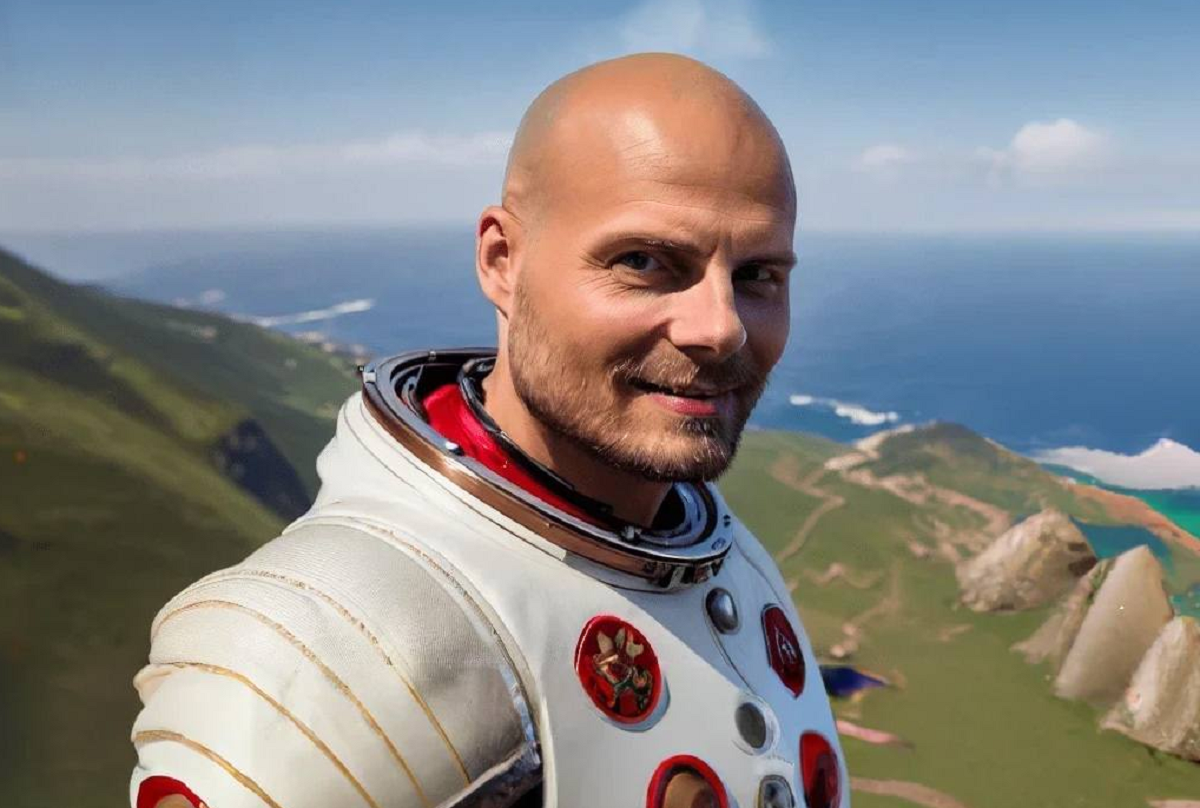
What artificial intelligence can do is not limited to these areas. AI is also extending to humanities. Pavel Peregudov, the founder of Russia’s first generative content contest, MyFilm48 and producer at the Prospect Studio, spoke about how artificial intelligence influenced the development of creative industries, and showed the video works of participants in Russia’s first contest, created using neural networks. The expert shared his opinion that the use of AI in film production and other creative fields makes it possible to implement innovative projects on a limited budget, as artificial intelligence can automate many processes, including editing, colour grading and even script planning.
One of the key areas for analysis is the area of communication, according to the Centre for Artificial Intelligence and Data Science at St Petersburg University. In this area, AI technologies are already used to write articles, news and scripts for films and TV series, and generate images. In future, mass personalisation of news feeds and automation of text construction are expected.

According to Kamilla Nigmatullina, Head of the Department of Digital Media Communications at St Petersburg University, in the autumn, St Petersburg University opens the master’s programme "Artificial Intelligence in Journalism and Media Communication". The programme prepares specialists who can effectively integrate new technological tools into the media field.
Over the past two years, new technologies have been actively developing; open and accessible neural networks are of great interest.
Kamilla Nigmatullina, Head of the Department of Digital Media Communications at St Petersburg University
"There are already quite a lot of examples of how we can use products of various companies, both international and Russian, in journalism, PR industry, and advertising. Today, artificial intelligence is going to be used together with professional knowledge. In this regard, we have decided that it should be introduced as an independent academic programme," said Kamilla Nigmatullina.
The use of neural networks by the media industry is a response to the growing demands of the audience for the quality and efficiency of information, Kamilla Nigmatullina said. According to the Professor at St Petersburg University, artificial intelligence can automate routine tasks, e.g. primary news processing, sorting and classification of data, which significantly speeds up the process of preparing materials and enables journalists to focus on more complex and creative aspects of their work.
Polina Ogorodnikova, Deputy Head of the Marketing and Media Communication Department at St Petersburg University, focused on the real experience of using neural networks in the University practice. The cover and part of the images in one of the issues of the St Petersburg University magazine were generated by artificial intelligence, she said. This experiment explored new creative approaches that could be used when preparing media products.
Following the event, the participants held a discussion that raised questions about the regulation of the use of artificial intelligence, the differences between generated content and human-created content, and the possibility of training neural networks to recognise emotions. In conclusion, Pavel Peregudov, a co-founder of AI start-ups focused on the importance of such meetings for exchanging best practices and real results of implementing new tools, stressing the need to quickly adapt to the rapid development of neural networks.


